The Spectator brings you the latest insight, news and research from the front line. Sign up here to receive this briefing daily by email, and stay abreast of developments both at home and abroad.
News and analysis
- Business Secretary Alok Sharma has self-isolated after showing symptoms of Covid-19 in the House of Commons. Around 25 people are diagnosed in London each day.
- The two-week quarantine for arrivals to the UK was not put before the science advisory group Sage, according to members of the body. Details below.
- However, while Tory backbenchers dislike the policy, exclusive polling for The Spectator reveals that 67% of the public support the two-week quarantine. Katy Balls has the details.
- Boris Johnson is to host a virtual vaccine summit today with 35 other heads of state. The summit aims to raise £6 billion to help fight coronavirus as well as polio, diphtheria and measles.
- Former MI6 chief Sir Richard Dearlove has told the Daily Telegraph that he has seen unpublished research suggesting coronavirus is man-made and escaped from a Chinese lab by mistake.
- The Prime Minister has pledged a guaranteed apprenticeship for every young person. Kate Andrews asks if that’s really in his gift.
- Some 44% of primary schools did not open at all on Monday, according to a survey by the National Education Union.
- Almost 30,000 people will have to be retested for Covid-19 after their swab tests were voided by an American lab. The swabs had been sent to the US because a lab in Northern Ireland had stopped processing samples.
- The government is attempting to rebuild its pharmaceutical stockpile in the hope of avoiding the worst impacts of a second Covid-19 spike at the same time as a possible no-deal Brexit.
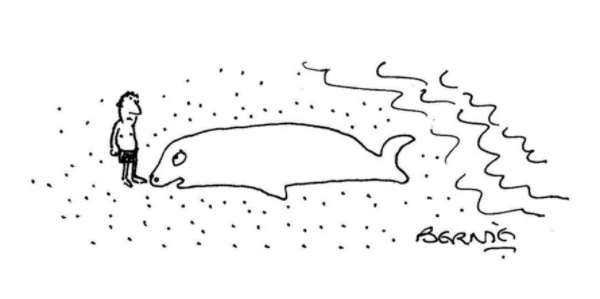
‘So, with the lockdown relaxed, I headed straight to the beach.’
Scientists push back on two-week travel quarantine
When Priti Patel was describing the government’s plans for a two-week travel quarantine, something strange happened. ‘It was the first time I’ve ever seen when not a single Tory in the chamber backed the government’ says one veteran MP. Backbenchers think it’s populist, unscientific and will hit families who might like a two-week holiday but can’t take four weeks off work. As Katy Balls reported on Coffee House yesterday, criticism was hurled at the cabinet from both Labour and Tory MPs, including 1922 Committee chairman Sir Graham Brady and former Conservative ministers Liam Fox and Theresa Villiers. The government’s response was the same as it has been throughout the pandemic: scientific advice is guiding action.
But the scientists (who suspect they’ll be framed in the inevitable Covid inquiry) are fighting back now. It has emerged that ministers did not, in fact. consult the Sage committee about the quarantine policy. It appears that, had it done so, leading scientists would have advised against it. Speaking in a personal capacity, Professor Mark Woolhouse – a member of the SPI-M group which does modelling for the Sage committee – told the Times that it makes ‘no sense’ to bring in the quarantine now: ‘It’s a very odd time to bring it in… when quarantining people coming in from overseas is a really good idea is when there is a high probability they have the infection.’ In Wednesday’s press conference, chief science officer Patrick Vallance chose his words carefully but in the process hinted that the policy was a political decision.
If the government is not following the science on its quarantine policy, what is leading its decision-making process? The answer may lie in The Spectator’s exclusive polling carried out by Redfield & Wilton Strategies: out of a sample of 1,500, more than 60 per cent agree with 14 days of self-isolation for travellers to the UK, while 67 per cent agree it should apply to UK citizens as well. It seems public opinion is playing a role in crafting government policy; this isn’t particularly surprising, but shouldn’t be categorised as ‘the science’ either.
In pictures

In words
Of course we can all think that what is happening in the US is bad. But to go ahead with a demonstration where a very large number of people will be crushed together in a small area? You wonder if anyone has had holes in their heads.
– Björn Olsen, professor of infectious diseases, on the Black Lives Matter protests in Stockholm
The message is, we do not want British people and Swedes here at the moment. If they do come, they will have to go into quarantine for two weeks.
– Dutch Prime Minister Mark Rutte says Britain and Sweden remain on the country’s ‘banned’ list of travel destinations.
A vaccine flop by Ross Clark
Ten days ago the first results from a human trial of a Covid-19 vaccine – developed by Chinese company CanSino Biologics were published in the Lancet. The researchers, from the Jiangsu Provincial Centre for Disease Control and Prevention in Nanjing, reported an immunological response in most of the 108 people given the vaccine. However, they were not able to assess how effective it would be in preventing infection in the first place because the level of antibodies required to not catch the virus is not known. They also reported adverse reactions in 81 per cent of those taking part – mostly mild cases of muscle pain and fever – rising with the size of the dose received. Nine people, however, developed a severe fever.
Reaction to the trials are coming in from other scientists – who are less than impressed. Matti Sällberg, professor and vaccine researcher at the Department of Laboratory Medicine at the Karolinska Institute in Stockholm, tells a Swedish newspaper: ‘The saddest thing is that the level of neutralizing antibodies is quite low.’ There is a difference, he says, between antibodies that can only bind to the virus, and neutralising antibodies which stop it functioning. Only between 50 and 75 per cent of those in the trial developed levels of neutralising antibodies which are likely to be sufficiently high to prevent infection.
The CanSino vaccine is only one of 120 vaccines under development, many on an unusually accelerated timetable. Others may be better. But it is a reminder that we cannot take a vaccine for granted – and we cannot rely on one as a strategy for getting out of a lockdown which is hugely damaging the economy and other medical aspects.
Read more from Ross Clark on Coffee House.
Global news
- Polling from G7 countries shows a drop in public trust in governments’ handling of the coronavirus pandemic since the height of the crisis – with the British government suffering the steepest fall.
- A former president of Ecuador has been arrested for embezzling medical supplies during the pandemic.
- Emergency room visits in America have fallen42% during lockdown according to a report from the US Centers for Disease Control.
- Italy has lifted its restrictions on domestic travel and opened its international borders. Meanwhile casinos in Las Vegas have reopened having been shut since 18 March.
- France has passed a law allowing employees to donate their paid holiday to health workers.
Our latest podcast
Research: Mind over matter?
Age and gender are big indicators for how a person will react to a Covid-19 infection. But is it simply age and biology that makes the difference, or behaviour as well? Research from Georgia State University suggests that the vulnerability of older men to Covid-19 is partially due to lack of concern about the virus, compared with younger people and women. ‘Compared with other participants (in the study), older men endorsed the fewest number of behaviour changes’ such as more frequent hand washing and wearing a face mask. The findings are ‘consistent with prior research showing that older adults report less worry than younger adults, and men report less worry than women’, but could help explain why older men have been disproportionately affected by Covid-19.
Datawatch: Car sales crash
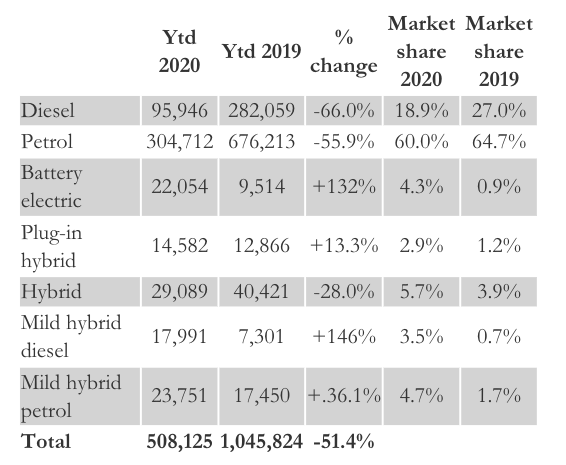
Source: Society of Motor Manufacturers and Traders (Link)
Coronomics
- The government has pledged £10 billion worth of trade credit insurance to help shore up British manufacturing. The scheme will protect overseas buyers from losing cash to defaulting firms.
- Germany has agreed a €130 billion (£116 billion) stimulus package, including a €300 (£270) one-off ‘children’s bonus’ payment.
- There has been a 74% jump in scam phishing emails since January according to data obtained from HMRC, with criminals using coronavirus fears to defraud the unsuspecting.
- Trip requests on Uber fell 80% in April and 70% in May on the previous year.
- Aston Martin will cut 500 jobs as the pandemic hits car production levels. Car dealership Lookers will slash 1,500 jobs. Meanwhile Rolls-Royce has confirmed that it will cut 3,000 jobs in the UK.
- More than 40% of cinemas in China may be forced to close as a result of the pandemic.
- Global air travel rose 30% in May compared with April’s record lows. Airlines cut fares on domestic flights by an average of 23%.
- The pandemic has left 150,000 seafarers stranded at sea with another 150,000 stuck on shores, according to the International Chamber of Shipping.
- Up to 70 million pints of beer will be destroyed in the UK so that pubs can reclaim paid duty. Meanwhile Young’s intends to open its 276 pubs in August with a one-metre social distancing policy in place.
More from The Spectator
Our duty to Hong Kong: the case for granting full British citizenship – Fraser Nelson
Newsnight’s dodgy coronavirus data – Steerpike
The risks of a failed Chinese vaccine – Ross Clark
What’s the truth about coronavirus and North Korea? – Edward Howell
Watch: Piers Morgan clashes with Rudy Giuliani – Steerpike
Self-isolation tips from Spectator Life
How to draw a virus: spare a thought for the Covid-19 cartoonists – Guy Venables
10 beach houses to stay in this summer – Spectator Life
The best short novels to read in lockdown – Will Gore

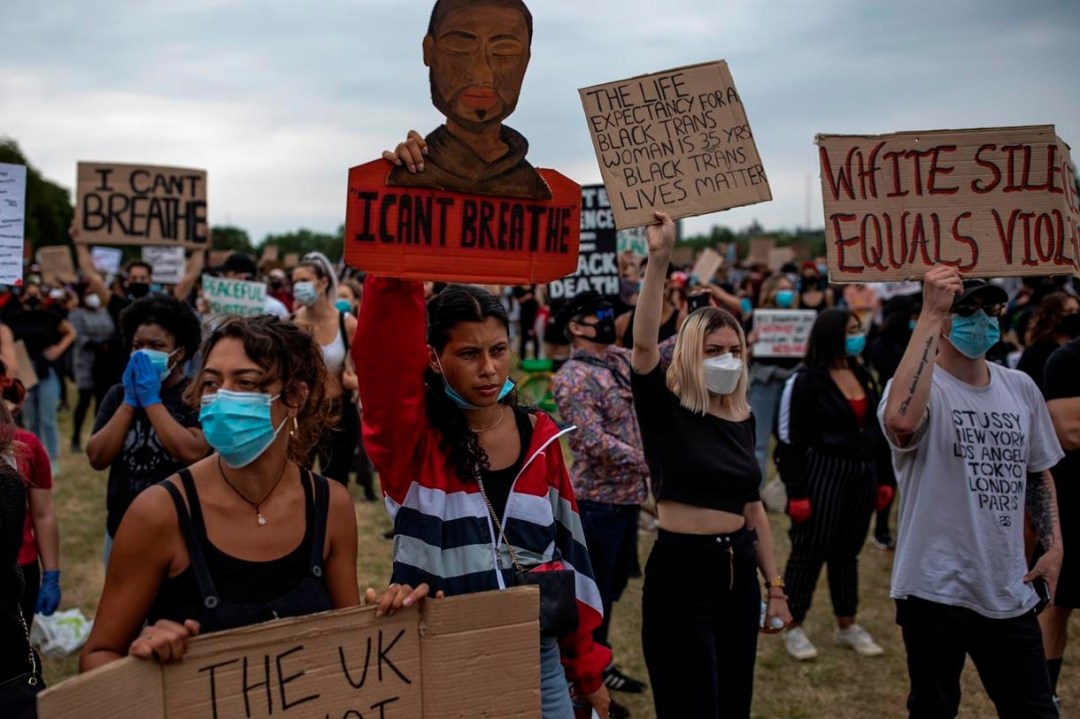
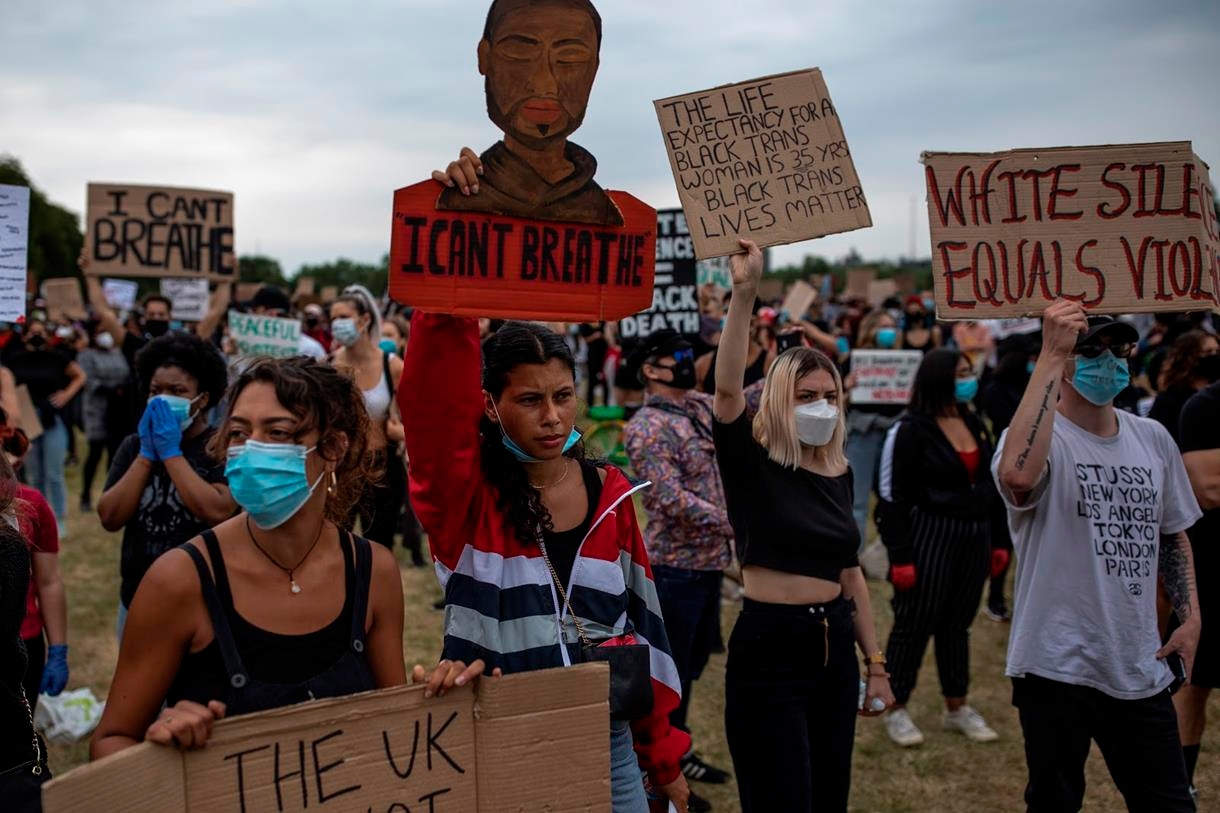



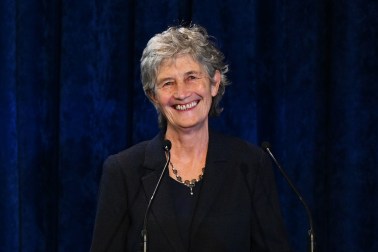
Comments